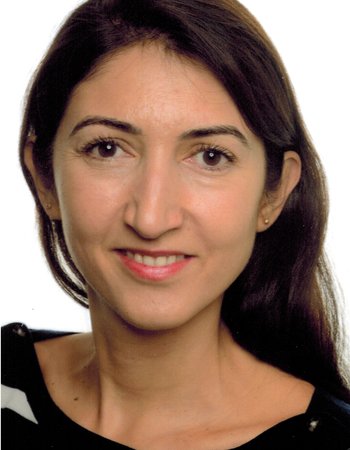Speakers
We are glad to announce the following distinguished researchers as speakers for the Virtual Max Planck Colloquium: New Perspectives for Basic Physical, Chemical and Biological Research in Process Engineering:
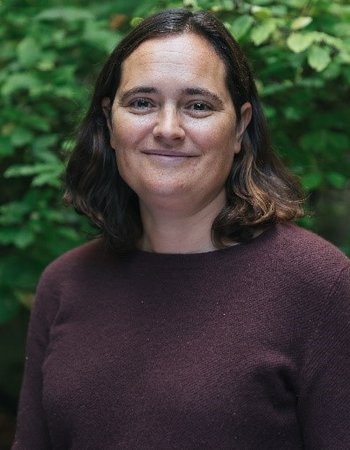
Prof. Charlotte K. Williams
Charlotte Williams is a professor of Inorganic Chemistry and an EPSRC Established Career Research Fellow in the Department of Chemistry at the University of Oxford. Her research interests lie in polymerization catalysis, inorganic and polymer chemistry. She is particularly focussed on carbon dioxide utilization by copolymerization and on the production of bio-derived polyesters, polycarbonates and block polymers. She is a Fellow of the Royal Society. Her work has been recently recognised by the Leverhulme Medal of the Royal Society, The Royal Society of Chemistry Tilden Medal (2021), an OBE for Services to Chemistry (2020), Macro Group UK Medal (2019), DeChema Otto Roelen Catalysis Medal (2018), The UK Catalysis Hub Sir John Meurig Thomas Medal (2017) and the Royal Society of Chemistry Corday Morgan Medal (2016).
Past speakers

Prof. Cleo Kontoravdi
Cleo Kontoravdi is Professor of Biological Systems Engineering at the Department of Chemical Engineering, Imperial College London. She received M.Eng. and Ph.D. degrees from the same Department. Upon completing her PhD studies, she joined Lonza Biologics as a R&D Scientist before returning to Imperial as a Lonza/RCUK Fellow in Biopharmaceuticals Processing. Her group focuses developing hybrid computational and experimental approaches for bioprocess design and optimisation.
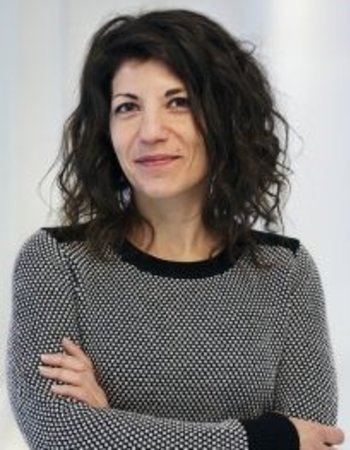
Prof. Dr. Raffaella Buonsanti
Professor Raffaella Buonsanti is an Associate Professor in the Department of Chemistry and Chemical Engineering at EPFL. She leads a multidisciplinary research program which spans from nanoscience to materials chemistry and electrocatalysis. She has received an ERC Starting Grant in 2016 and an ERC Consolidator Grant in 2022 in addition to numerous awards, including the Swiss Chemical Society Werner Price in 2021 and the European Chemical Society Lecture Award and the Royal Chemical Society ChemComm Emerging Investigator Lectureship in 2019. She is also the chair of the Nanoscience Subdivision of the ACS Division of Inorganic Chemistry and is an Associate Editor of ACS Catalysis.
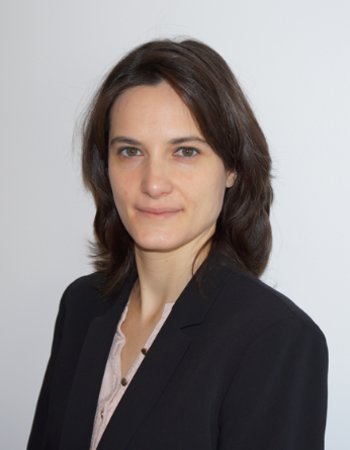
Prof. Laura Torrente Murciano
Dr. Laura Torrente is a Reader in the Department of Chemical Engineering and Biotechnology at the University of Cambridge where she leads the Catalysis and Process Integration group. She has expertise in the areas of reaction engineering, process integration, sustainable chemical processes and energy. She is a member of the UK Catalysis Hub. Her research is being supported by the UK Research Council, Horizon 2020, Innovate UK and industry; having been recently awarded an ERC Consolidator grant. She has received the Future leaders in Engineering Sponsorship Award and the Rushlight Carbon Capture and Storage Award. She has recently co-author a policy brief document commissioned by the Royal Society entitled “Ammonia: zero-carbon fertiliser, fuel and energy store” (royalsociety.org/green-ammonia).
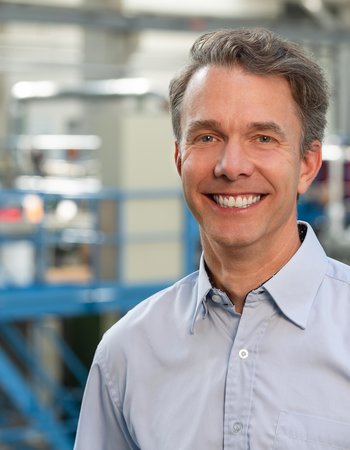
Prof. Dr.-Ing. habil. Lutz Mädler
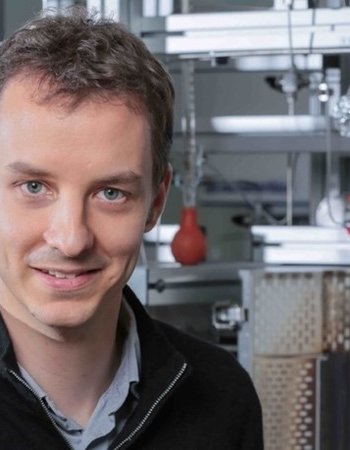
Prof. Jeremy Luterbacher
Jeremy Luterbacher was born in Switzerland in 1984 and received a B.Sc and M.Sc. in chemical engineering from the École Polytechnique Fédérale in Lausanne (EPFL), Switzerland in 2007. He spent a year as a visiting scientist at the Massachusetts Institute of Technology (MIT) and then moved to Cornell University in Ithaca, New York, to pursue doctoral studies. After receiving his PhD in 2012, Jeremy joined the Great Lakes Bioenergy Research Center at the University of Wisconsin-Madison as a Swiss National Science Foundation Postdoctoral Scholar. In 2014, Jeremy returned to EPFL as a Tenure-Track Assistant Professor and head of the Laboratory of Sustainable and Catalytic Processing.
Since arriving at EPFL, Jeremy has been awarded the Assistant Professor Energy grant from the Swiss National Science Foundation in 2014 and a European Research Council (ERC) starting grant in 2017. In 2019, he was awarded Werner Prize by the Swiss Chemical Society for outstanding independent chemical research in Switzerland and EPFL’s University Latsis Prize for his discovery of acetal stabilization of lignin and sugars during biomass conversion. He is also a recipient of the 2021 ACS Sustainable Chemistry & Engineering Lectureship Award. Jeremy is currently the elected vice-chair for the Lignin Gordon Conference, and an associate editor for Science Advances.
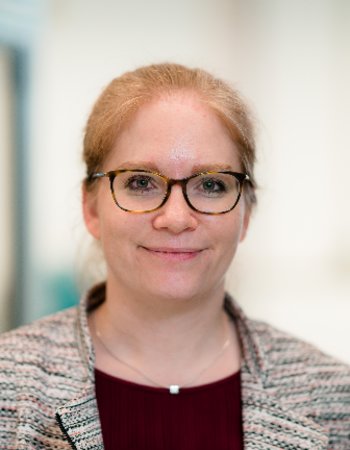
Prof. Dr.-Ing. habil. Doris Segets
Doris Segets’ endeavour is the development of scalable formulation and coating technologies for nanomaterials applied in the field of energy conversion and storage, e.g. fuel cells and batteries. She received her PhD in 2013 from Friedrich-Alexander-Universität Erlangen Nürnberg (FAU) in the field of particle technology. In the same year, she became the head of the nanoparticle processing group where focused topics were nanoparticle technology, characterization of nanomaterials and structure-property relationships along the process chain: synthesis-formulation-layer formation. In December 2018 she was appointed as WISNA professor for process technology for electrochemical functional materials at University of Duisburg-Essen (UDE) and finished her habilitation in mechanical process engineering in July 2020. Doris Segets’ works are highly recognized, e.g. Friedrich-Löffler-Prize for young scientists for outstanding contributions in the field of particle technology and product design 2016 and the prestigious Dechema Prize 2020. She is also active within the community, e.g. as chairperson of the ProcessNet working group on interfacially dominated systems and processes, as member of the senate of the UDE and as member of the Young Academy of BBAW/Leopoldina. Another important topic that accompanies all her works and activities is the improvement and structural anchoring of diversity and equal opportunities.
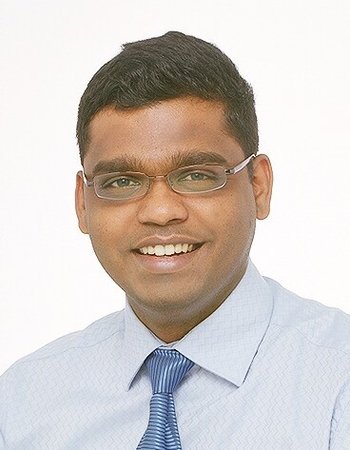
Prof. Arvind Rajendran
Arvind Rajendran is a professor of Chemical Engineering at the University of Alberta. He received his Doctorate degree from ETH Zurich. He stated his academic career at Nanyang Technological University, Singapore and moved to the University of Alberta in 2012. He serves as an associate editor of the Canadian Journal of Chemical Engineering and as an area editor of Adsorption- the journal of the International Adsorption Society. He has co-authored over 75 papers/book chapters and (co-) advised 27 graduate students (MSc+PhD). His research group focuses on adsorptive gas separations with applications in CO2 capture, oxygen purification and helium separation.
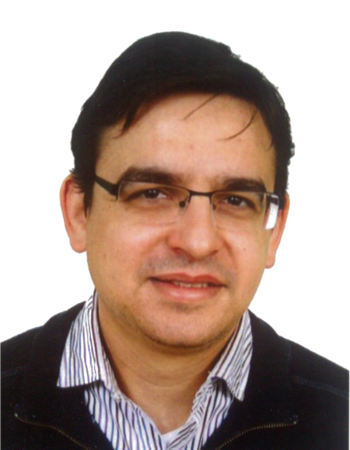
Prof. Marc Pera-Titus
Marc Pera-Titus received a double MSc degree in Chemical Engineering (2001) and Physical Chemistry (2002) and a PhD (cum laude) in Membrane Technology (2006) at University of Barcelona (Spain). In 2007, he joined as postdoc the group of Jean-Alain Dalmon at IRCELYON/CNRS (France) with a Marie Curie EIF grant. In 2008, he was appointed CNRS scientist at the same institution. He was Visiting Professor at HKUST (Hong Kong) in 2008 and 2009. In 2011, he received his Habilitation degree (HDR) from the University Claude Bernard Lyon 1. Also in 2011, Marc was appointed project leader and expert at E2P2L in Shanghai (Deputy Director since January 2016).
The main research interests of Marc at E2P2L focus on the design and shaping of materials for catalysis and separation with a sound insight into process eco-design. His current activities cover 4 main topics: (1) acid-base catalysis for biomass conversion, (2) amination catalysis for the synthesis of monomers, (3) oxidation catalysis for the synthesis of surfactants, and (4) biphasic catalysis for solvent-free reactions.
Marc is author of about 120 peer-reviewed papers, 8 book chapters and conference proceedings, and inventor of 16 patents in the fields of zeolite membranes, membrane reactors, adsorption and heterogeneous catalysis with more than 4400 citations. Marc has received numerous awards, including the Rhone-Alpes Foundation Award (2007), the Elsevier Award for highly cited author in Catalysis (2009), the Silver Medal from the Chinese Academy of Inventions (together with E2P2L team) (2016), and the DivCat award from the French Society of Chemistry (2017).
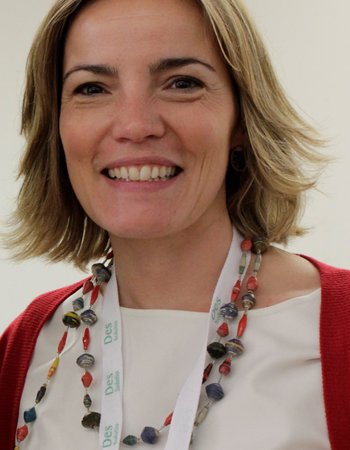
Prof. Ana Rita C. Duarte
Ana Rita C. Duarte was born in Lisbon in 1978. Currently Associate Professor at the Chemistry Department from Faculdade de Ciências Tecnologia, Universidade Nova de Lisboa. She was previsously Research Assistant at the 3B’s research group at Universidade do Minho, where she worked for 10 years. She graduated in Chemical Engineering by Faculdade de Ciências e Tecnologia, Universidade Nova de Lisboa in 2002 and completed her PhD on Exploring supercritical fluid technology for the preparation of controlled drug delivery systems in 2006 by the same University. In 2006/2007 she was a researcher at Techniche Universiteit Delft, The Netherlands.
The International Society for Advancement of Supercritical Fluids granted her thesis the Best Thesis Award in 2007. In 2013 she was awarded a Fulbright Scholar to support her stay at the Massachusetts Institute of Technology, where she was for a period of 6 months. In 2015 as part of the team of the project HydrUStent, Ana Rita won the Novo Banco Innovation Award, one of the major innovations awards in Portugal and in 2016 she co-founded the start-up HydrUStent. In 2016 she was awarded an ERC consolidator grant entitled: DES.solve – When Solids Become Liquids: Natural Deep Eutectic solvents for Chemical Process Engineering, to proceed the developments on green technologies. This project funded by the European Research Council has a funding of 1,87 million euros, to be developed in 5 years. In 2018, co-founded Des Solutio, a spin-off company from FCT_NOVA which aims to develop safer and greener alternatives to the chemicals that are usually used in the production of beauty, pharmaceutical, personal care and other products. She is the Action Chair of COST Action Greenering which involves more than 140 participants from 33 different countries.
At the moment, she has 116 papers listed in web of knowledge with a total of 3492 citations, and an h-index of 34. Her main research interests are the use of green technologies for the development of biomaterials. In particular, the use of water, and supercritical fluids together with the exploration of natural deep eutectic solvents for pharmaceutical and cosmetic applications.
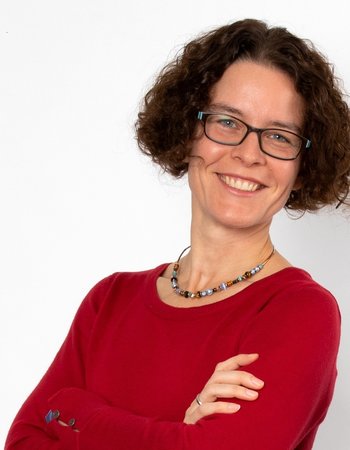
Dr. rer. nat. Regina Palkovits
Regina Palkovits is Full Professor for Heterogeneous Catalysis & Chemical Technology at RWTH Aachen University. She graduated in Chemical Engineering from Technical University Dortmund in 2003 and carried out her PhD under supervision of Prof. Ferdi Schüth at the Max-Planck-Institut für Kohlenforschung until 2006. Afterwards, she joined the group of Prof. Bert Weckhuysen at Utrecht University as postdoctoral fellow. In 2008, she returned as a group leader to the Max-Planck-Institut für Kohlenforschung and since 2010 she is Professor at RWTH Aachen University. Her research focusses on the design of catalysts and processes for the efficient valorisation of renewable resources. Professor Palkovits currently heads the Sustainable Chemistry Division of GDCh and is vice-chair of the scientific advisory committee of LiKat. She received numerous awards, including the 2019 EFCATS Young Researcher Award, the 2016 DECHEMA Award, and the Innovation Prize of the State of North Rhine-Westphalia in the Young Researchers category. She is a Max Planck Fellow at the Max Planck Institute for Chemical Energy Conversion and as of 2020, a member of the North Rhine-Westphalian Academy of Sciences, Humanities and the Arts.
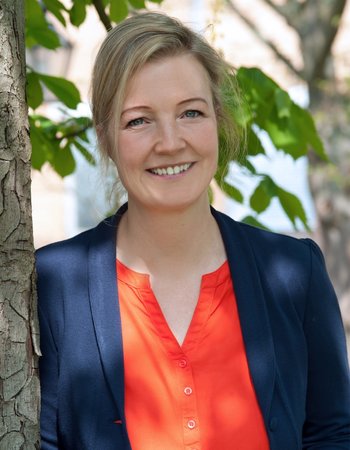
Prof. Dr. Dörte Rother
Dörte Rother holds a diploma degree in biology from RWTH Aachen University. She conducted her PhD at the Institute of Molecular Enzyme Technology (IMET), Heinrich-Heine University Düsseldorf with research stays at Karolinska Institute Stockholm (SE), University of Freiburg (D) and University of Stuttgart (D), defending her thesis in 2008. In the same year she received a DFG-postdoc scholarship to work at RWTH Aachen University and became in 2009 postdoctoral student at the IBG-1: Biotechnology at Research Center Jülich. In 2012 she started her own Helmholtz-young investigators group in Jülich, which is additionally funded by a starting grant of the European Research Council (ERC) since 2017. In 2018 Dörte Rother was appointed as full professor for `synthetic enzyme cascades’ at RWTH Aachen University. She received the DECHEMA-Prize 2018 and the Biotrans Junior Award 2019 for her outstanding research activities in multi-step biocatalysis and sustainable process development. Her research group is still located at the Research Center Jülich, were she is now leading the group `biocatalysis’. She has three children.
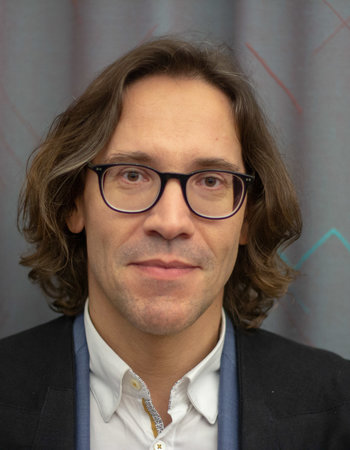
Prof. Alexei Lapkin
Graduate from Novosibirsk State University with a degree in Chemistry in 94, worked as a junior scientist at Boreskov Institute of Catalysis (Novosibirsk), for 3 years before moving to University of Bath (UK) as a Research Assistant (and p/t PhD project) in the Department of Chemical Engineering. Completed PhD in 2000 and got appointed as a Lecturer in Chemical Engineering in the same Department. Stayed at Bath for 9 years before moving to University of Warwick as Professor of Engineering in 2009. Since April 2013 is in the current position as Professor of Sustainable Reaction Engineering @ University of Cambridge.
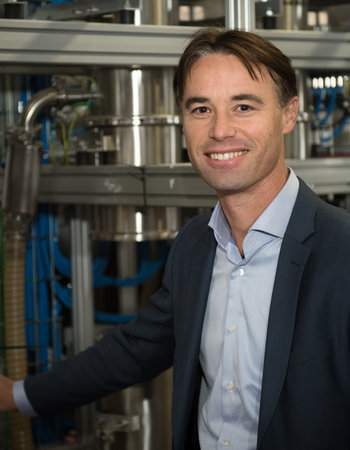
Prof. Kevin van Geem
Kevin Van Geem is full professor in the Faculty of Engineering and Architecture at Ghent University (UGent). He is director of the Center of Sustainable Chemistry and director of the board of the Laboratory for Chemical Technology of Ghent University. His main research interest is thermochemical reaction engineering in general, with a focus in particular the transition from fossil to alternative resources such as biomass, CO/CO2 and plastic waste. He is a former Fulbright Research Scholar of MIT, visiting professor at Stanford. He is in charge of the pilot plants for steam cracking, chemical recycling, biomass pyrolysis and super dry reforming. He is the author of more than two hundred scientific publications, has 3 patents and he is managing director of his own spin-off company on modeling steam cracking. He is involved in electrification, process intensification, machine learning & data mining, product formulation, drug discover, scale-up and process modelling.
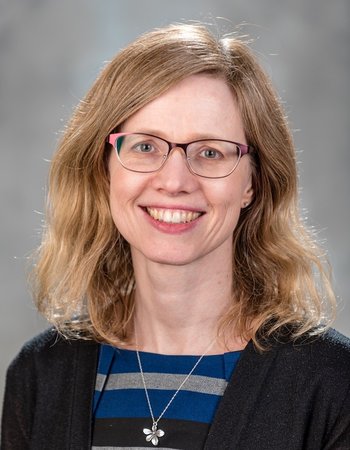
Prof. Martha Grover
Martha Grover is a Professor in the School of Chemical & Biomolecular Engineering at Georgia Tech, and Associate Chair for Graduate Studies. She earned her BS in Mechanical Engineering from the University of Illinois, Urbana-Champaign, and her MS and PhD in Mechanical Engineering from Caltech. She joined Georgia Tech as an Assistant Professor in 2003. In 2011 she received the Outstanding Young Researcher Award from the Computing and Systems Technology Division of AIChE, and in 2019 the Himmelblau Award for Innovations in Computer-Based Chemical Engineering Education. Her research program is dedicated to understanding, modeling, and engineering the self-assembly of atoms and small molecules to create larger scale structures and complex functionality. Her approach draws on process systems engineering, combining modeling and experiments in applications dominated by kinetics, including surface deposition, crystal growth, polymer reaction engineering, and colloidal assembly. She is a member of the NSF/NASA Center for Chemical Evolution, and Georgia Tech’s Decision and Control Laboratory.
